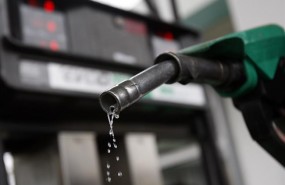
The Ibex continues to be unaware of the national political uncertainties following the snap election and this Friday it has shot up 1.91%, to 9,123 points, accumulating a weekly rise of 3%. The selective, like the rest of European stock exchanges, has been driven by the banking sector, which has reacted very positively to the possibility that the ECB restart its stimulus program.
- 11.473,900
- 0,33%
The banks have taken the top positions of the selective this Friday, with Sabadell (+ 5%) Bankinter (+ 3.9%) and Santander (+ 3.6%) leading the highest increases in a sector in which all values have closed above 2.8%. The person responsible for the rise was Benoit Coeure, member of the Executive Committee of the European Central Bank (ECB), who at an event held in New York opened the door to restart the stimulus program.
In addition to the banks, the rise of Arcelormittal has stood out, which closed as the fourth most bullish value of the session with an important advance of 3.6%. The large non-bank stocks also accompanied the rise in the selective, especially Inditex (+ 3.1%) and Telefónica (2.5%).
The energy sector was the most negative face of the day, with Endesa (-1.3%) Red Eléctrica (-1.2%) and Enagás (-1%) emerging as the most bearish values of the session.
The main news of the day in Spain, the snap election announced by President Pedro Sánchez for April 28, has not had any negative repercussions on the markets.
Barclays analysts believe that "from the perspective of what future government could bring more beneficial policies to the market than the current one, almost all possible electoral options will be similar or better." Therefore, we should not expect a negative reaction from the market during the next weeks before the elections. "
TECHNICAL ANALYSIS
"Impeccable overcoming of resistances in the Ibex, which is finally able to leave behind the resistance that it presents in the upper part of the small bearish channel that we have referred to in recent days, and now the most difficult thing is still missing: jumping over of the resistance of 9,260 points, preferably in a weekly period, doing so, in theory, would confirm a large inverted 'head and shoulders', with objective (theoretical minimum) at 10,000-10,200 points, "explains José María Rodríguez, technical analyst at Bolsamania
"Very interesting also the strength of the main Spanish bank, Banco Santander, which has rebounded with maximum precision from the support it presents in the bullish gap of 3.95 euros, by definition support, and now it should set course for the important resistance that presents in the 4.39 euros. Above, it would also confirm a figure of return (the same as the Ibex) with a target at €5 ", concludes Rodriguez.
NATIONAL EMERGENCY
On one of the key issues of the week, the talks between China and the United States, the market has remained optimistic on this day before the possibility of avoiding the tariff increase scheduled for next March 1. Representatives Steven Mnuchin and Robert Lighthizer met today with President Xi Jinping.
The great political news of the day in the United States has led, once again, President Donald Trump, who has decided to avoid a new closure of Government by signing the agreement reached in Congress, but at the same time has declared the national emergency to get the additional funds it needs to build the border wall with Mexico.
Encouraged by this news, Wall Street quotes in green at this time after closing this Thursday with moderate declines while in Asia the cuts have been more marked by the publication of a retail sales data worse than expected. This showed the largest monthly fall since January 2000.
COMPANIES AND OTHER MARKETS
In the business sector, today we have continued to publish results, such as those of Allianz, which has obtained a net profit in the fourth quarter of 1,7bn euros compared to €1,4bn in the same period of the previous year. The insurer's shares are up more than 3% on the Frankfurt stock exchange.
As for the data of the session, the INE has confirmed that the CPI fell 1.3% in January in relation to the previous month and cut its interannual rate by two tenths, down to 1%, its lowest level in the last year.
Noticias relacionadas
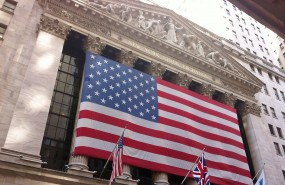
Wall Street cierra mixto tras el peor dato de ventas minoristas desde 2009
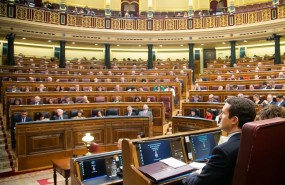
Los analistas coinciden: la fragmentación política es el gran problema de España
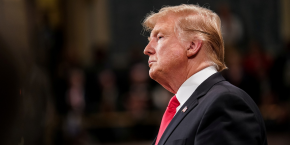
Trump evitará el cierre del Gobierno, pero declarará la emergencia nacional
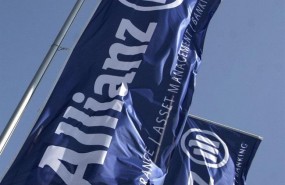
Allianz gana 1.700 millones en el cuarto trimestre, un 19% más
